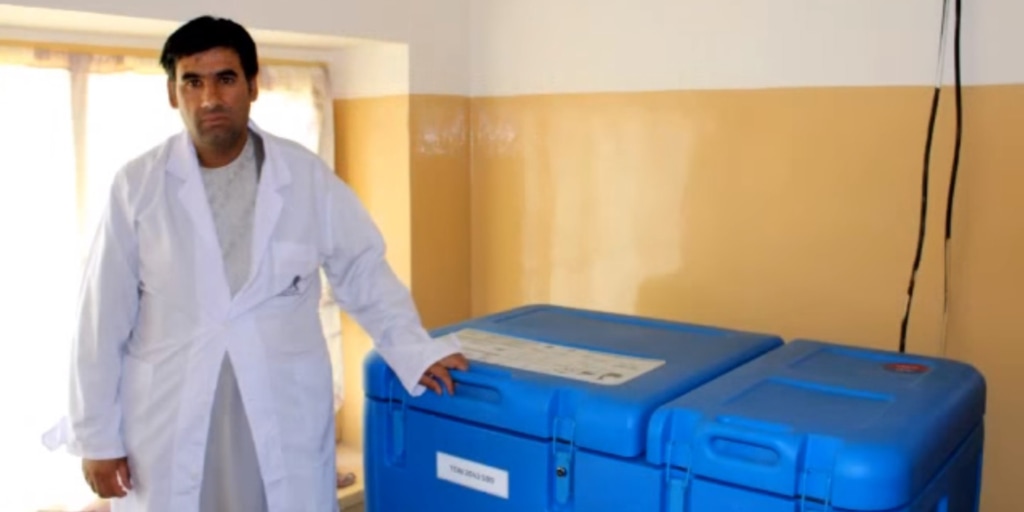Testimonials
Building up vaccine cold chain in Afghanistan (EPI)
Despite progress in past years, Afghanistan is recording a low vaccination coverage with measles outbreaks regularly striking the local population. An EPI coverage survey estimated fully immunized coverage by the age of 1 to hover at 36.3%, while 18.3% of children were found to have never received any vaccine dose. To overcome this challenge and ensure children a healthy life, the government is enhancing the quality of the national cold chain. 300 solar vaccine refrigerators – manufactured by B Medical Systems – equip health facilities across the country.
“I am satisfied with B Medical Systems refrigerator, as it works steadily and its monitoring system is the best that our senior doctors can check at any time. We are glad to have this product in our clinic to keep our vaccines safe. The technicians of Alishah Qureshi Ltd [B Medical Systems’ local partner] inspect the refrigerator on a regular monthly basis”, Dr. Basir, EPI Vaccinator in Bagrami Clinic Kabul-Afghanistan.
The refrigerator that Dr. Basir works with is a TCW 2043 SDD, a refrigerator designed by B Medical Systems to store large quantities of life-saving vaccines in optimal conditions even in the most off-grid areas of the world. This equipment works straight from solar panels. In a country engulfed in instability like Afghanistan, solar power is more reliable than electricity supply. Even in less sunny days, the cooling system is able to keep the vaccines cold, between the 2-8°C temperature range recommended by the WHO, for three days.
The remote temperature monitoring solution that comes with all devices also offers a real-time overview of the efficiency and performance of the national cold chain. By simply logging in into a platform available over the Internet, government officials and healthcare providers can track the status of the refrigerators and the vaccines stored.
The dashboard collects critical data, such as the temperature of the vaccines inside the refrigerators; the lid openings; and the GPS position of all cold chain equipment. In case of doubts about the storage conditions, vaccinators have the right tool in hand to double check whether any temperature deviations or events may have jeopardized the potency of the vaccines. Thanks to this technology parents can rest assured that their children receive safe and efficient vaccines.
On top of children’s safety, the RTM technology allows health authorities to monitor the performance of each device remotely. It provides an alternative to the functionality test (commissioning) that must be conducted up to 72 hours after each installation, when the equipment is running at stable temperature. Avoiding them to go on site saves time and money, but also prevents to put lives at risk unnecessarily.
Within its immunization campaign, the Afghan Ministry of Public Health has purchased a total of 450 TCW 2043 SDD under the Expanded Programme on Immunization of UNICEF. B Medical Systems’ local partner – Qurishi Group – collaborates with the Ministry, the national EPI representatives and the health facilities to coordinate the delivery and the installation of the vaccine refrigerators. The technicians also provide on-site training and carry out the maintenance of the vaccine cold chain equipment.




